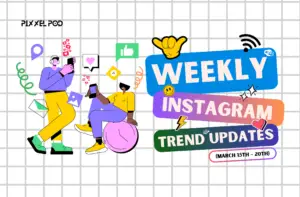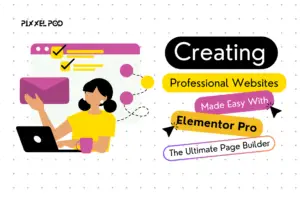Table of Contents
ToggleLast Updated on December 21, 2024 by Admin
In recent years, social media platforms have faced intense scrutiny over their handling of misinformation, particularly concerning public health topics like COVID-19. One of the most controversial areas of misinformation has been the spread of false or misleading information about the pandemic, vaccines, and public health measures. Meta, the parent company of Facebook, Instagram, and WhatsApp, has been at the center of this debate, facing both criticism and pressure from regulators, public health experts, and the general public to take stronger action against COVID-related misinformation.
In response to these concerns, Meta has recently called upon its independent Oversight Board to review its approach to handling COVID-19 misinformation. The Oversight Board, often referred to as Facebook’s “Supreme Court,” is an independent body tasked with making binding decisions on content moderation, appeals, and policy implementation for Facebook and Instagram. Meta’s move to involve the Oversight Board in reassessing its policies on COVID misinformation signals the company’s attempt to address the growing public pressure for better management of harmful content on its platforms.
In this blog article, we’ll delve into why Meta has sought the Oversight Board’s input, how the review process works, and what the implications are for the future of misinformation policies on social media platforms.
Why Is Meta Reviewing Its Approach to COVID Misinformation?
COVID-19 misinformation has been a persistent problem on social media since the beginning of the pandemic. False claims about the virus, vaccines, treatments, and public health guidelines have been widely circulated, often with significant consequences for public health efforts. These false narratives have contributed to vaccine hesitancy, the spread of conspiracy theories, and a lack of trust in scientific institutions and authorities.
Meta has implemented a range of policies to combat COVID-19 misinformation. These measures have included:
- Labeling false or misleading content with fact-checking warnings.
- Removing content that promotes harmful health misinformation.
- Promoting accurate health information from trusted sources like the World Health Organization (WHO) and the Centers for Disease Control and Prevention (CDC).
- Introducing new features such as vaccine information centers and COVID-19 resource hubs.
Despite these efforts, Meta has faced significant criticism. Critics argue that the company’s content moderation policies have been inconsistent and often too slow to act. They have also raised concerns about the effectiveness of the fact-checking system and the role of user engagement with misleading content.
Meta’s Oversight Board: The Role and Process
Meta’s Oversight Board is an independent entity created to review and make decisions on content moderation and policy enforcement on Facebook and Instagram. The Board was established in 2020 as part of Meta’s response to increasing criticism of its content moderation practices, particularly in relation to free speech and the company’s impact on democracy.
The Board is made up of global experts in various fields, including law, human rights, journalism, and technology. It is tasked with reviewing individual content moderation decisions, providing recommendations for policy changes, and offering guidance on best practices for Meta’s content moderation teams. The decisions made by the Oversight Board are binding, which means Meta must follow the Board’s recommendations.
The review process works as follows:
- Content Appeals: Users or groups can appeal content moderation decisions made by Meta. This includes both content removal and content retention decisions.
- Board Deliberation: The Oversight Board deliberates over cases, consulting with experts and considering the broader implications of each decision.
- Recommendations and Rulings: The Board issues binding rulings, which Meta is required to follow. These rulings can involve reinstating removed content, removing retained content, or suggesting changes to Meta’s policies.
- Public Transparency: Meta is required to publish the Board’s rulings and the reasoning behind each decision, ensuring transparency and accountability.
In calling on the Oversight Board to review its approach to COVID misinformation, Meta is essentially seeking a more robust and transparent examination of its policies. This review will likely focus on whether the existing policies are effective in addressing harmful content, whether they are applied consistently, and whether there are unintended consequences that may have hindered the fight against misinformation.
What Is Meta Seeking from the Oversight Board?
Meta’s decision to involve the Oversight Board in the review process is a proactive attempt to address ongoing concerns about its handling of COVID-19 misinformation. Specifically, Meta is seeking guidance on:
- Effectiveness of Current Policies: Meta wants to assess whether its current strategies for combating COVID misinformation—such as fact-checking, content removal, and labeling—are working as intended. The company may be looking for feedback on how these policies can be refined or adjusted to address evolving misinformation around the pandemic, particularly as new variants and health guidance emerge.
- Consistency in Content Moderation: There have been concerns about inconsistency in how Meta enforces its policies. The company has been accused of allowing harmful content to spread unchecked in some instances while removing content from users or pages that might not have violated guidelines. The Oversight Board’s review will likely look at whether there is consistency in how these policies are applied across different types of content and users.
- Balancing Free Speech and Public Health: One of the most challenging aspects of moderating COVID-19 content is finding the right balance between curbing harmful misinformation and respecting free speech. Meta has faced criticism for both censoring legitimate discourse and for not doing enough to combat dangerous misinformation. The Oversight Board may provide insights into how Meta can better balance these competing concerns, ensuring that public health is protected without overstepping into unnecessary censorship.
- Long-Term Strategy for Handling Misinformation: The pandemic is not over, and misinformation continues to evolve. Meta is likely seeking a long-term strategy that can address not only COVID-19-related misinformation but also future health crises and other forms of harmful content.
How Could the Review Process Impact Meta’s Policies?
The Oversight Board’s review of Meta’s approach to COVID misinformation could lead to several significant changes in how the platform handles such content moving forward.
- More Refined Misinformation Guidelines: Based on the review, the Oversight Board may recommend that Meta refine its existing guidelines for what constitutes misinformation, particularly in the context of public health. These changes could involve clearer definitions of harmful content, improved identification methods for misinformation, and more transparent ways of informing users about flagged content.
- Enhanced Transparency and Accountability: The Oversight Board may push for greater transparency in how Meta moderates content related to COVID-19. This could include clearer explanations about why content is removed or labeled, as well as more detailed reports on how misinformation is tracked and dealt with.
- Greater Focus on Education and Awareness: The Board may recommend that Meta put more emphasis on educational initiatives aimed at combating misinformation. This could include promoting scientific literacy, providing users with easy access to trusted sources, and creating more comprehensive educational campaigns about the dangers of misinformation.
- Improved Collaboration with Health Organizations: Meta’s review could result in the platform strengthening its partnerships with health authorities, including the WHO, CDC, and local governments. These collaborations could help ensure that accurate, up-to-date health information is prioritized and that misinformation is quickly identified and removed.
Implications for the Future of Misinformation on Social Media
Meta’s call for the Oversight Board to review its approach to COVID misinformation represents a significant moment in the broader conversation about misinformation on social media platforms. As misinformation continues to spread across the internet, platforms like Meta are under increasing pressure to find ways to address this challenge without infringing on users’ free speech.
The outcome of the Oversight Board’s review could set a precedent for how social media platforms handle public health misinformation in the future. As new health issues emerge and social media continues to play a central role in shaping public opinion, Meta and other platforms will likely be expected to implement more robust and effective solutions for combating misinformation while respecting freedom of expression.
Final Thoughts
Meta’s decision to seek the Oversight Board’s input on COVID misinformation marks a critical step in addressing the ongoing challenges of content moderation and public health communication. As the platform continues to navigate the complex landscape of misinformation, the Oversight Board’s recommendations could provide valuable insights into how Meta can improve its policies and better protect users from harmful content.
This review also highlights the growing responsibility that social media platforms have in curbing misinformation, particularly on issues as vital as public health. As the world continues to battle the COVID-19 pandemic and beyond, the role of platforms like Meta will be more important than ever in ensuring that users are empowered with accurate, reliable information while preventing the spread of harmful falsehoods.







